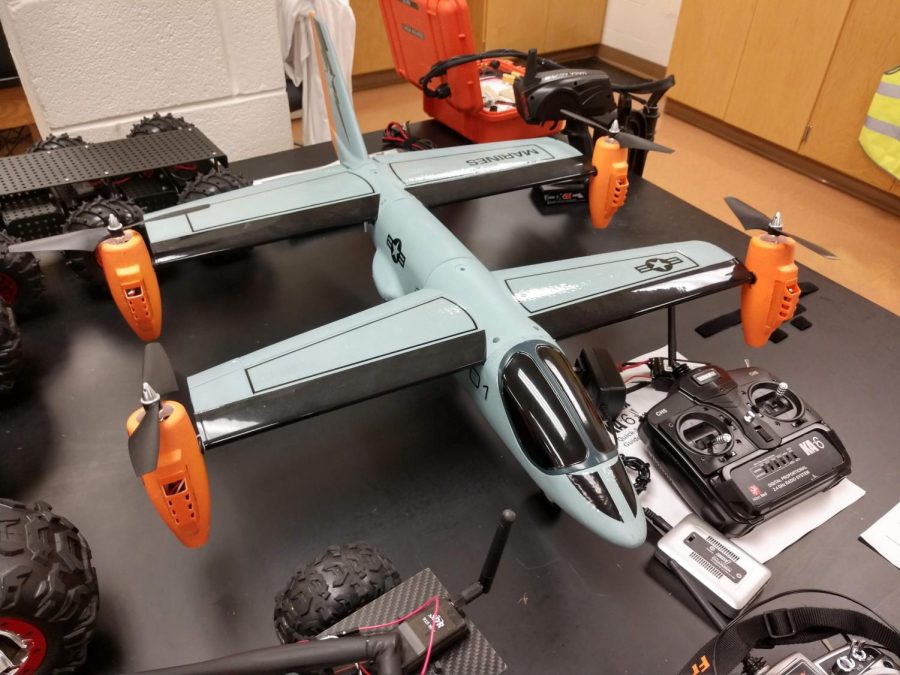Drones to take flight at AACC in fall of 2019
August 25, 2018
AACC will offer 12 non-credit courses this fall that will help qualify students to fly drones.
The college will add credit courses in the future as part of a partnership with Warrenton, Virginia-based Unmanned Aerial Systems Academy, whose Land.Air.Sea Robotics program comes with a new, $2 million college resource center that will house more than 30 drones.
The LASR@ AACC resource center in Careers will include a lab where students, faculty and members of the community can get help with science and technology work and learn “things that may not be taught in your classroom,” said Jim Blanchard, chief scientist of UAS Academy.
Previously, contractors from Dayton, Ohio, and Annapolis hosted online drone pilot training courses here that will continue.
The new, noncredit classes this fall will take place in person.
“I want to see [AACC] as the expert on drone technology in the Mid-Atlantic region,” Dean of Science and Technology Lance Bowen said. “I want everybody to say, ‘Drones? Oh, that’s AACC.’”
More than two dozen faculty members, from landscape architecture, construction management, cybersecurity, environmental science, biology and criminal justice have taken ground-school classes, and 14 of them also have finished flight school training, according to Blanchard.
“Those 14 will be the keystone faculty that will lead us through the fall,” said Blanchard.
In September, faculty members who have already completed their certifications will sponsor 24 hand-picked students to take ground and flight school at no cost. By the end of the spring semester, AACC should have 48 FAA-certified faculty and staff.
Faculty drone pilots will incorporate the use of drones into three landscape architecture classes this fall, Bowen said.
For example, students in three architecture classes–ACH 115, ACH 242, ACH 254–will learn how drones can monitor work sites from above and take aerial photographs of properties to help with the design process.
Jacob Bollinger, a first-year physician-assistant student, said he does not plan to take any of the offered courses, but he believes they are good for STEM—science, technology, engineering and math—at AACC.
“Technology nowadays focuses too much on convenience factor for people,” Kenneth Drake, a fourth-year creative-writing and psychology student, said. He added he is “OK with the program being here at the college so long as [drones are] put towards a positive use.”












